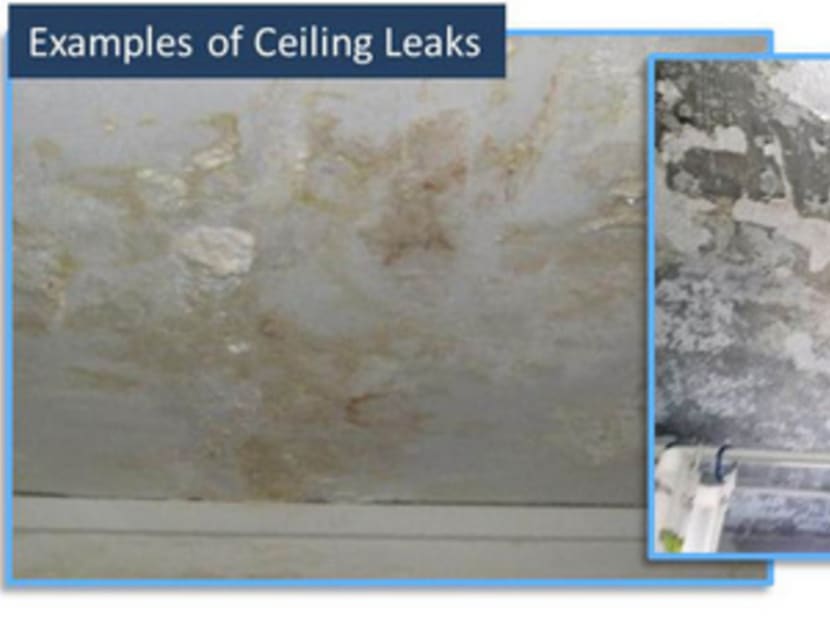Govt looking to empower HDB to enter flats for repairs
SINGAPORE — With some residents refusing Housing and Development Board (HDB) officers entry into their homes to investigate and repair leaky ceilings — prolonging the problem for those living in flats below theirs — the Government is looking to amend laws to empower these officers to access flats, National Development Minister Khaw Boon Wan said yesterday.
SINGAPORE — With some residents refusing Housing and Development Board (HDB) officers entry into their homes to investigate and repair leaky ceilings — prolonging the problem for those living in flats below theirs — the Government is looking to amend laws to empower these officers to access flats, National Development Minister Khaw Boon Wan said yesterday.
Writing on his blog, Mr Khaw said about 30 per cent, or 2,800 cases, of ceiling leak take more than three months to resolve each year because of uncooperative neighbours.
Last year, the HDB had to initiate legal action against 154 flat owners in order to enter their flats. Over the past four years, it has done so against about 120 uncooperative flat owners each year.
“In some rare cases, the resolution of the ceiling-leak problem could take more than a year,” said Mr Khaw. “This is just not satisfactory.”
Currently, the HDB will first try to persuade upper-floor owners to cooperate and, if necessary, involve grassroots leaders in the mediation. If all fails, it will go to the court for authorisation to forcibly enter the flats. “This process is time-consuming,” said an HDB spokesperson.
About 25 per cent of the feedback the HDB receives concerns ceiling leakage. As flats age, the waterproofing capacity of a flat’s bathroom floors decreases because of wear and tear, resulting in leaks.
Under the HDB lease terms, the upper- and lower-floor flat owners are responsible for repairing such leaks. They can tap the Goodwill Repair Assistance (GRA) scheme, under which the HDB’s term contractors will investigate the cause of the leakage and carry out repairs. Costs will be subsidised.
“From time to time, the HDB faces challenges in securing the cooperation and understanding of the owners of the upper-floor units to enter their flats first for investigation and later for repair,” the HDB said. “They do not allow our officers into their flats, keep changing appointments or simply could not be contacted. This only prolongs the inconvenience suffered by their lower-floor neighbours.”
Members of Parliament (MPs) TODAY spoke to welcomed the move, but said if enhanced powers are granted to HDB officers to enter flats, it should be a last resort. Mountbatten MP Lim Biow Chuan, who sits on the Government Parliamentary Committee (GPC) for National Development and Environment, said it should be used only when upper-floor neighbours are “really totally uncooperative”.
Inconvenience is a reason commonly cited by residents for not cooperating with the HDB on such matters, MPs said. Mr Lim cited the example of a resident — residing on the upper floor — who had renovated his flat and did not want contractors to tear up his floor tiles to carry out repairs.
MP Lee Bee Wah, who chairs the GPC, pointed out that as flats get older, leaky ceilings will become more prevalent. The upper-floor residents are reluctant to let HDB officers into their flats as they want assurance on how their property will be affected, she said.
The HDB noted that with the GRA scheme, each flat owner pays only 25 per cent of the cost and, on average, flat owners pay about S$180 for each ceiling-leak repair. Since the scheme was introduced in 2001, 140,000 households have benefited.










